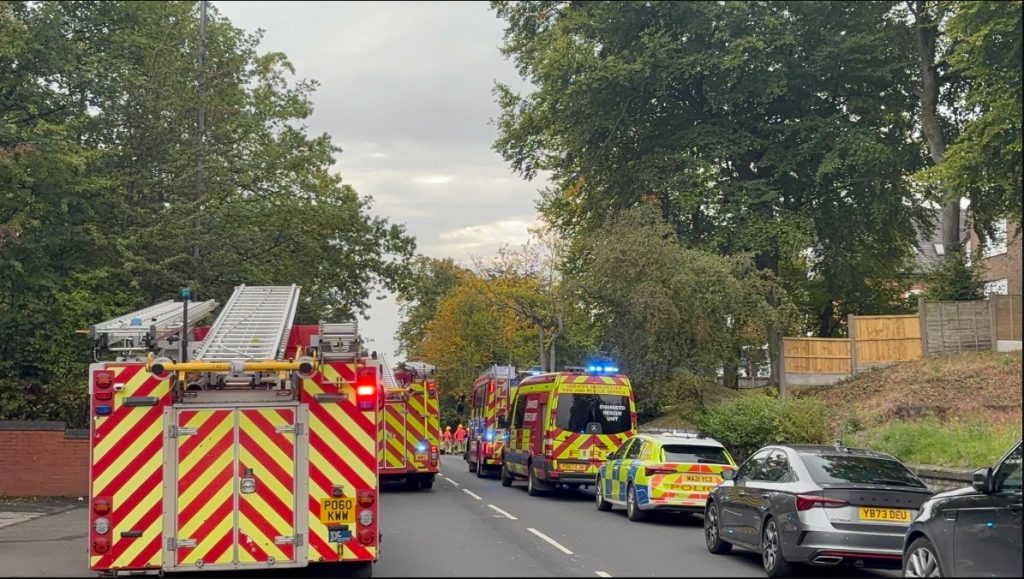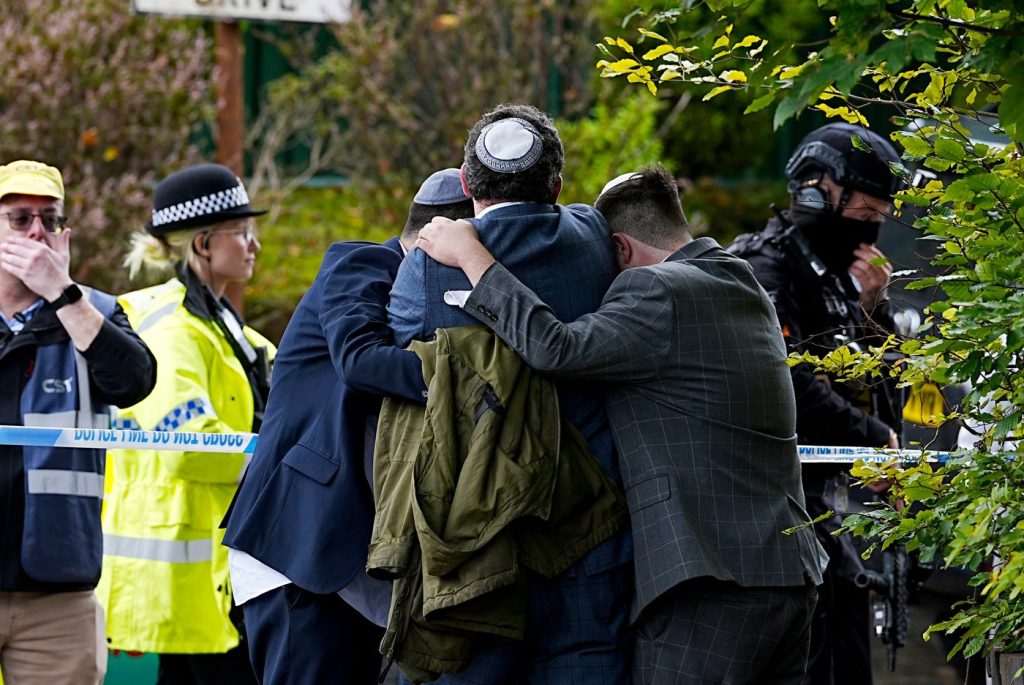An assailant drove a car into pedestrians outside the Heaton Park Hebrew Congregation Synagogue in northern England on Yom Kippur, the holiest day in the Jewish calendar, around 9:30 a.m. on Thursday. The attacker subsequently began stabbing individuals, resulting in the deaths of two people and seriously injuring four others. The police labeled the incident a terrorist attack.
Officers shot and killed the suspect outside Manchester. Authorities experienced delays in confirming his death due to the vest he was wearing, which created the appearance that it contained explosives. Later investigations revealed that he did not possess a bomb.
The Metropolitan Police, responsible for counter-terrorism in the UK, swiftly identified the rampage as a terrorist attack. Assistant Commissioner Laurence Taylor indicated that two additional suspects had been arrested; however, he did not provide further details. While police believe they have identified the main assailant, they have yet to confirm his identity.
The horrific attack occurred during a time when many congregants gathered for prayer at the synagogue. The victims who lost their lives were identified as Jewish individuals. Prime Minister Keir Starmer condemned the attack, calling it "vile" and asserted that it was aimed at Jews simply for being Jewish. He promised the Jewish community increased security, including a more visible police presence, to ensure their safety.
Israeli Prime Minister Benjamin Netanyahu expressed solidarity with the Jewish community in the U.K., sharing his condolences for the victims and their families and emphasizing the need for strength and unity against terrorism.
Incidents of anti-Semitism in the U.K. have risen to record levels, particularly following the Hamas attack on October 7, 2023, and the subsequent Israeli military operations in Gaza. The Community Security Trust, an organization focused on combating antisemitism in Britain, reported over 1,500 incidents in just the first half of 2023, marking a significant increase compared to the previous year.
Rabbi Jonathan Romain, of Maidenhead Synagogue and head of the Rabbinic Court of Great Britain, described the day of the attack as "every rabbi's or every Jewish person's worst nightmare," highlighting the increased vulnerability felt during such a significant religious observance.
Witness accounts detailed a chaotic scene, with a car crashing into the synagogue gates before the attacker emerged with a knife, targeting individuals nearby, including a security guard, as he attempted to force his way inside. According to local resident Chava Lewin, initial perceptions of the sounds were dismissed as fireworks until her husband suggested it could be a terrorist attack. Witnesses emphasized the rapid nature of the events as the suspect turned violent.
In a statement, Chief Constable Stephen Watson recognized the bravery of the security personnel and congregants who prevented the assailant from entering the prayer service. Following the confrontation, police were forced to detonate an explosion to access the interior of the assailant’s vehicle during the investigation.
This attack evokes memories of prior tragedies, such as the 2017 suicide bombing at an Ariana Grande concert in Manchester, which killed 22 people and serves as a reminder of the ongoing threat posed by radical terrorism in the region.
Emergency Response
In the immediate aftermath of the attack, police activated "Plato,” the national protocol for responding to a marauding terror incident. Starmer returned early from an international summit to lead an emergency government meeting and announced that additional police forces would be deployed at synagogues throughout the U.K. to enhance security measures.
King Charles III expressed his deep shock and sadness regarding the attack, recognizing its occurrence on an important day for the Jewish community. He conveyed heartfelt condolences to all affected by this tragic event.












